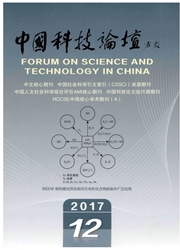

 中文摘要:
中文摘要:
我国民营科技企业为吸引、培养和稳定高级管理或技术人才,一直在探索股权激励机制;高校和科研院所也一直探索技术入股后的股权分配。2009年开始,以中关村、东湖和张江国家自主创新示范区为代表的创新政策先行先试地区,积极开展科技型企业的股权激励试点工作,为有关政策的全国推广积累经验。但我国股权激励税收政策尚存在落实难、缺乏对长期股权持有和科技性中小企业的激励等问题,一定程度上阻碍了股权激励的发展和其在促进科技成果转化方面的积极作用。本文通过国际比较,深入分析了我国股权激励税收政策的主要问题,并提出政策建议。
 英文摘要:
英文摘要:
Private S&T corporations of China keep exploring the mechanism of stock incentives in order to attract and stabilize senior management and technology talents. Universities and S&T institutions have also been practicing the ways of stock allocation after their IP transfer for stock. Since 2009, three national self-innovation pilot zones of Zhong guanchun, Donghu and Zhangjiang have early or late implemented the policies of stock-incentive pilot in S&T corporations. However, the problems in tax policies of stock incentives to some extent block the development of stock incentives and their positive role in promoting the commercialization of technology. Based on the international comparison, this paper analyzes the existing main problems in China's tax policies related to stock incentives and finally puts forward proposals.
 同期刊论文项目
同期刊论文项目
 同项目期刊论文
同项目期刊论文
 期刊信息
期刊信息
